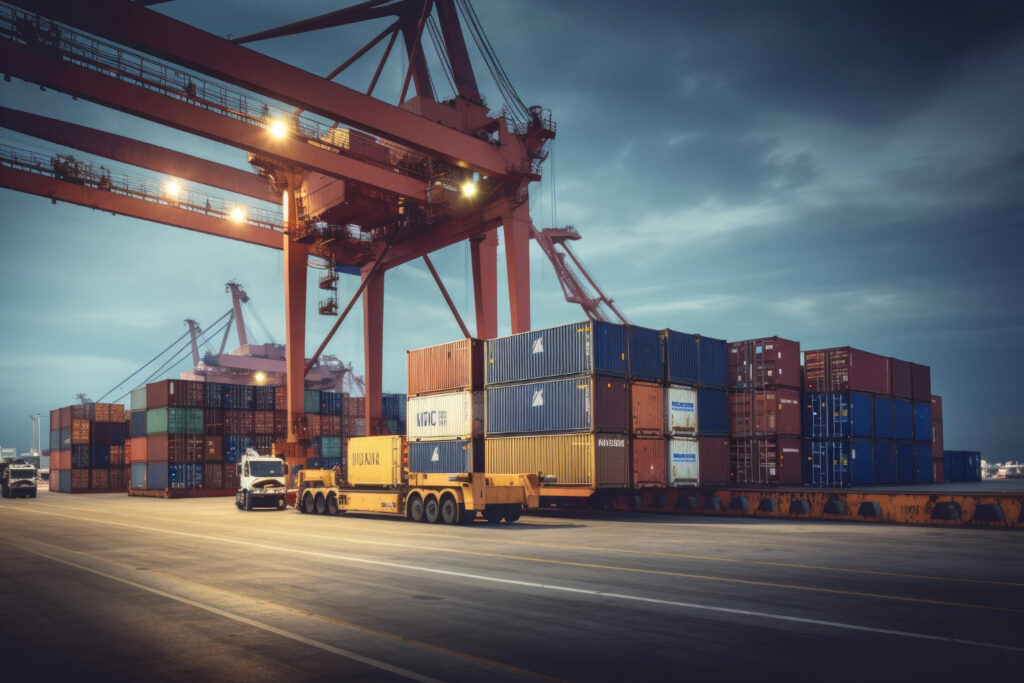Navigating the Highways of Transportation

Introduction
In today’s fast-paced world, efficient and reliable transportation is the backbone of economies. Road freight plays a pivotal role in ensuring goods reach their destinations swiftly and safely. In this article, we’ll delve into the world of road freight, exploring its significance, challenges, and how it keeps the wheels of commerce turning.
The Importance of Road Freight
The Lifeblood of Commerce
Road freight, often referred to as the lifeblood of commerce, is a cornerstone of modern logistics. It connects industries, markets, and people by transporting goods efficiently across the country and beyond. From fresh produce to industrial machinery, road freight carries the weight of the economy.
Versatility and Accessibility
One of the key advantages of road freight is its versatility. Trucks can access even the most remote areas, making it an ideal choice for delivering goods to both bustling cities and remote villages. This adaptability provides an edge over other transportation modes.
Swift and On-Demand
When time is of the essence, road freight shines. It offers swift, on-demand delivery, crucial for meeting just-in-time manufacturing demands and satisfying impatient online shoppers.
Challenges in the Industry
Traffic Congestion
As cities grow, so does traffic congestion. Roads often resemble snail-paced parking lots, causing delays and adding to transportation costs. Finding innovative ways to tackle congestion is a pressing challenge.
Environmental Concerns
The environmental impact of road freight cannot be ignored. Emissions from trucks contribute to pollution and climate change. Developing greener transportation alternatives is a must for a sustainable future.
Rising Fuel Prices
Fuel prices are a perpetual concern for road freight companies. Fluctuations in oil prices can significantly affect operational costs, leading to a need for efficient fuel management strategies.
The Road Freight Revolution
Smart Technology Integration
To combat traffic congestion and improve efficiency, the road freight industry is embracing smart technology. GPS, telematics, and AI-driven routing systems optimize routes, reduce fuel consumption, and enhance delivery accuracy.
Eco-Friendly Initiatives
Sustainability is at the forefront of the industry’s evolution. Electric and hybrid trucks, as well as the exploration of alternative fuels, are becoming increasingly prevalent, helping reduce the carbon footprint.
Enhanced Safety Measures
Safety on the road is paramount. The industry invests heavily in driver training, vehicle maintenance, and safety technology to reduce accidents and protect both drivers and the public.
Conclusion
In the grand scheme of commerce, road freight emerges as a silent hero. It adapts, evolves, and keeps goods flowing to support our daily lives. As we navigate the highways of the future, road freight’s transformation into a sustainable, efficient, and eco-friendly mode of transportation will be vital for the prosperity of nations and the health of our planet.
Frequently Asked Questions
- What is road freight? Road freight is the transportation of goods by trucks or lorries on road networks, making it one of the most common and versatile forms of logistics.
- How does road freight impact the environment? Road freight contributes to pollution and carbon emissions. Efforts are being made to reduce its environmental footprint through cleaner and more efficient technologies.
- What challenges do road freight companies face? Challenges include traffic congestion, fluctuating fuel prices, and the need to adopt sustainable practices.
- How is technology shaping the road freight industry? Technology such as GPS, telematics, and AI-driven systems are optimizing routes, reducing costs, and enhancing safety.
- Why is road freight so crucial in today’s world? Road freight is vital for the timely and efficient transportation of goods, ensuring that products reach their destinations swiftly and safely.
